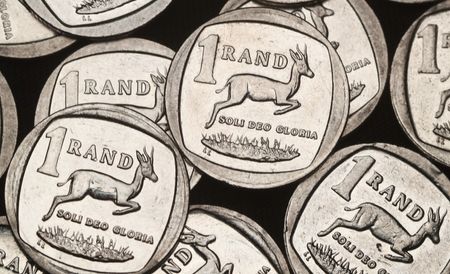By Jorgelina do Rosario
LONDON (Reuters) – Ghana’s debt restructuring plans are set to test a $400 million World Bank guarantee which was designed to provide extra security if the West African country failed to pay.
Like other smaller, riskier emerging market countries including Sri Lanka and Zambia, Ghana faces a debt overhaul after its already strained finances buckled under the economic fallout from COVID-19 and Russia’s invasion of Ukraine.
While Ghana’s troubles came as no surprise to investors — its overseas bonds have tumbled to a third of face value and the cedi suffered the world’s worst currency plunge this year — the way the World Bank guarantee will work out is not clear.
Legal experts and investors are now scouring the contract of the $1 billion bond involved, which is due to mature in 2030 and has a guarantee equivalent to interest payments due in the next four years, to figure out Ghana’s options.
Ghana’s Ministry of Finance did not reply to a request for comment on its plans.
“If Ghana decides to use the guarantee, it has to pay back immediately to the World Bank,” Mitu Gulati, a law professor at the University of Virginia and debt restructuring expert, said.
“And it’s hard to do so if its debt is unsustainable.”
The World Bank said at the time it was issued that the so-called credit enhanced bond was designed to allow Ghana to sell bonds in 2015 under “challenging market conditions”.
“This is a highly protected instrument that was issued with the logic that Ghana would never default on the World Bank,” Gulati said.
Ghana would be in a difficult spot if it cannot repay the World Bank, a multilateral lender with preferred creditor status, while holding talks with the International Monetary Fund (IMF) to obtain financing aid.
Syria, Eritrea, Somalia and Zimbabwe are on a very short list of countries in arrears to the World Bank, which cuts off their access to a multitude of multilateral lenders.
IN OR OUT?
Ghana has not yet said whether the 2030 issue will be part of its debt restructuring.
Rodrigo Olivares-Caminal, professor of banking and finance law at Queen Mary University of London, who advises investors on such issues, said the bond would probably be excluded due to “multilateral debt implications”.
“The guarantee was designed to kick in when there is a temporary liquidity issue, not an structural debt problem,” he told Reuters.
Also, the guarantee cannot be accelerated “under any circumstances,” according to the bond’s contract, so that amount would not become immediately due and payable for the creditors.
If the bond were included in the restructuring, it is unclear if the guarantee would still be in place, Gulati added.
Luis Costa, head of CEEMEA strategy at Citi, also expects that a “special treatment of this bond will be provided”.
Prices of the bond, which has a 10.75% yield, seem to reflect some optimism. They have fallen less than any other Ghanaian sovereign debt so far in 2022, and outperformed short-term bonds maturing in 2025 and 2026 since end-September, when an IMF staff mission began talks for a lending programme.
Credit enhanced issues, including multilateral guarantees on all or part of the bonds or a link to high quality sovereign collateral such as U.S. government bonds, are rare.
However, discussions about them became more prominent again in early 2020 as a tool to help lesser developed countries cope with the economic fallout from the coronavirus crisis.
In September 2020, JP Morgan’s prominent bond index division allowed these structures to form part of its benchmarks.
But take up has been limited. Ecuador is one of the few examples, issuing a bond with the help of the Inter-American Development Bank.
Polina Kurdyavko, head of emerging market debt at BlueBay Asset Management, said she expected Ghana’s bond could be excluded in the same way Ecuador decided to keep paying the IDB backed bond in its 2020 debt restructuring.
“There is not much upside in defaulting this bond,” Kurdyavko said, adding it could create “a more challenging precedent for the World Bank or any multilateral lending guaranteed instruments”.
(Reporting by Jorgelina do Rosario; Additional reporting by Cooper Inveen in Accra; Editing by Karin Strohecker and Alexander Smith)











